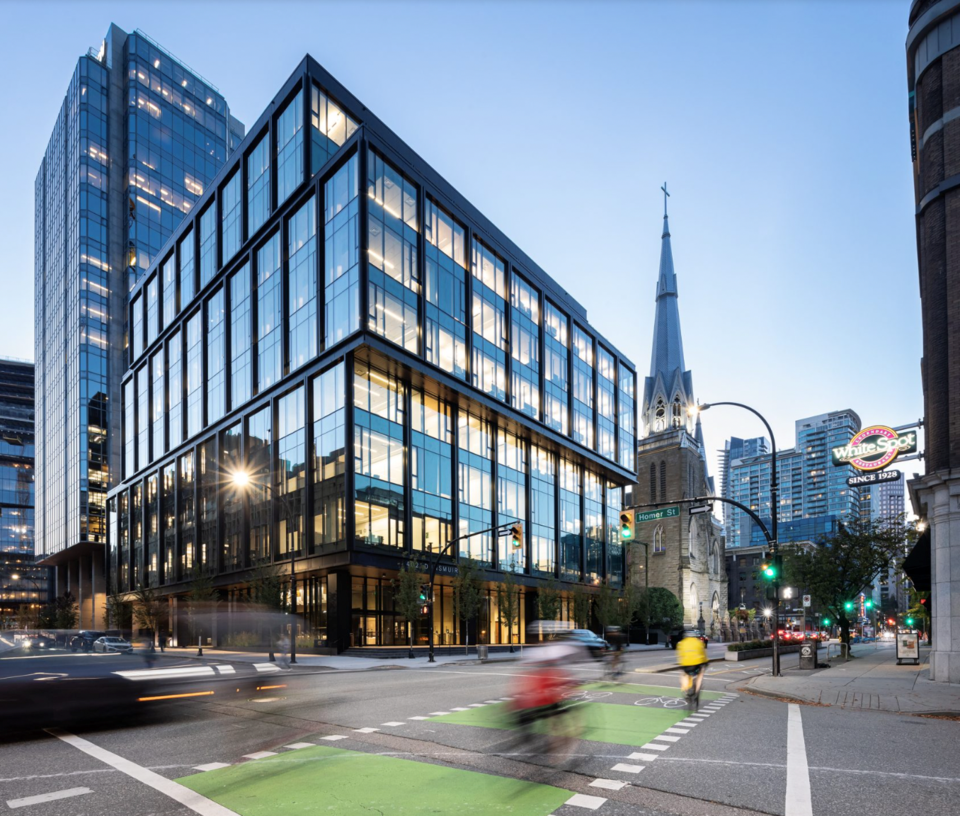Canada’s commercial real estate landscape is set for a “seismic shift” not seen since the early 1990s as the cost of capital winnows out under-capitalized players and ushers in a new generation of investors.
“There's going to be a seismic shift in what's going to happen with the commercial landscape in Canada in the next three, four years,” Avtar Bains, founder and principal of Premise Properties Ltd. told commercial real estate association NAIOP in a Feb. 1 discussion of investment markets.
While the high interest rates of 1982 ruined many, Bains said the downturn of 1993 was even worse for the Vancouver real estate market in terms of liquidity.
The liquidity challenges have returned in the current environment, where interest rates have risen faster and stayed high for longer than they did 40 years ago.
The result has been a reset in people’s expectations of the cost of capital, heralding a changing of the guard similar to the late 1980s and early 1990s.
Bains did a roll call of names from the era: TrizecHahn, Olympia & York, Bramalea, Campeau Corp.
The watershed moment as the tide went out on their ambitious plans saw them succeeded by the institutional investors who have come to dominate the commercial real estate market. Backed by billions worth of retirement savings and with a mandate to invest them on behalf of public sector workers, they scooped up a range of properties with strong fundamentals and good cash flow.
The new normal following the pandemic, with its hybrid work arrangements and close scrutiny of risk, has seen the institutional investors pull back from certain asset classes and reallocate funds.
“When Trizec and Bramalea and O&Y and all those guys went through trouble, the pension funds were there to backfill, right?” Bains asked. “If these billions and billions and billions of dollars of supply come on the market right now, who's going to backfill?”
Private equity and offshore capital, he said, setting the stage for a new roster of investors to dominate markets.
A sign of the shift taking place is the recent deal Oxford Properties, the real estate arm of the Ontario Municipal Employees Retirement System (OMERS), and the Canada Pension Plan Investment Board (CPPIB), have struck with Germany's Deka Immobilien Investment GmbH for 402 Dunsmuir Street and 401 West Georgia Street, attached buildings which comprise an entire city block in the downtown core.
“There was a number of bids for the assets and all were international. There were no domestic bids,” said Tony Quattrin of the national investment team at CBRE Ltd., which led the marketing effort.
The 22-storey 401 West Georgia building was built in 1985 and houses four anchor tenants, including Aon Canada Inc. and BuildDirect.com Technologies.
The nine-storey, 152,000-square-foot 402 Dunsmuir building is an expansion of 401 West Georgia that Oxford custom-built for Amazon.com, Inc. in 2020.
A purchase price has not been publicly disclosed, but Western Investor sources estimated the two centre-ice location, Class A buildings could sell for a total of more than $300 million when the properties were listed last summer. Bloomberg reported a sale price in that range earlier this month, in breaking news of the sale.
However, Quattrin said the prices currently reported amount to “speculation” and advised waiting for the full details when the transaction completes “in a few weeks.”
Those details are eagerly anticipated by the market, he said, which is looking for a measure of the worth of downtown office properties in the post-pandemic era. Downtown Vancouver has one of the most stable office markets on the continent right now, with the lowest downtown vacancy rate of any Canadian market CBRE surveys.
“This deal is an important transaction at a time when capital markets are very hesitant to jump into real estate, when values have obviously shifted but there’s no data points,” Quattrin said. “A lot of North American markets are looking hard at this transaction to see what it’s going to say when it closes.”



